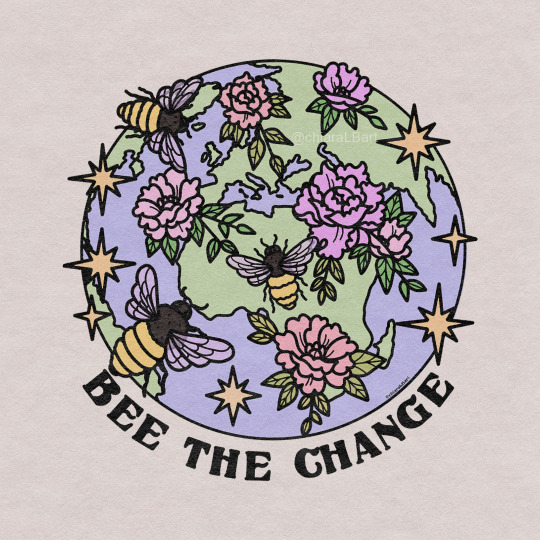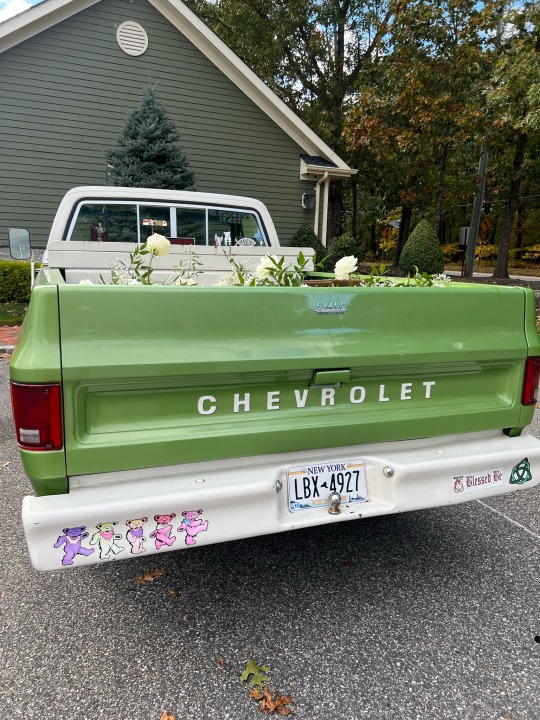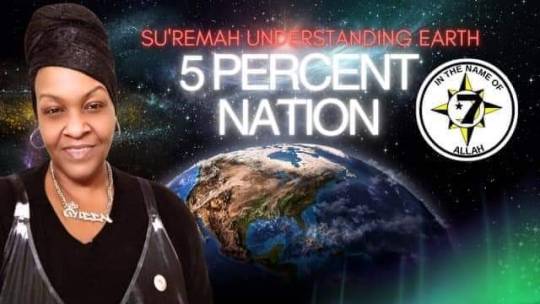#vegan for the earth
Text
one thing thats so interesting about being a vegetarian is you get to hear all about everyones hypothetical activism that they care about very deeply when talking specifically about your diet and why it's stupid, but literally will never bring up ever again in any other context
#good idea generator#ppl will honest to god hit me with a 'well what about the dmg caused by plant agriculture' when i say im vegetarian for the environment#oh please tell me more about all the things youre doing to try to minimize your impact on the environment#and all the things you know about agriculture. in your infinite wisdom of [checks notes] doing the exact same thing you always have#or is the argument that because individual choices make little difference that we shouldnt even try or talk about it in case its annoying?#its not necessarily that these people arent making good points also#its just that when you have these same conversations 75 times over and over and over and OVER and get nowhere#it starts to become obvious most people learn these arguments in order to avoid genuinely interrogating their eating practices#either on an individual or communal level. am not asking you to cut out meat or go vegan (not a realistic demand of everyone on earth)#but i AM asking that you please do some self reflection on why the idea makes you so defensive#and about what exactly is so terrible of the idea that we may need to produce and consume less meat#i thought about 75 disclaimers i could put on this post but honestly if they become necessary it would prove my point
131 notes
·
View notes
Text

BEE THE CHANGE 🐝 🌍
reminder for Earth Day that we can all do our part to help our planet in our daily life with the smallest things 🌱
#earth day#earth day 2023#bee the change#save the bees#art on tumblr#artist on tumblr#artists on tumblr#vegan artist#vegan artists#vegan art#veganism#zero waste#zero waste living#procreate art#procreate
303 notes
·
View notes
Text

Saw the most aesthetic truck of my life a few months back and still think about it
October 22nd, 2023
#aesthetic#photography#mine#nature#aesthetic blog#new york#beautiful#ny#cottagecore#plants#green#fall#autumn#flower#flowers#earth tones#vegan#travel#tiktok#Pinterest#car#cars#photographers of tumblr#newyork#long island#Longisland#li#cool#like#hiking
38 notes
·
View notes
Text
Today is Earth Overshoot Day.
"Earth Overshoot Day marks the date when humanity’s demand for ecological resources and services in a given year exceeds what Earth can regenerate in that year."
This means that from today on, we are living in an ecological deficit, or on "credit". We are using natural resources the earth cannot replenish, as well as accumulating waste the earth cannot deal with, "primarily carbon dioxide in the atmosphere". We are using 1.7 earths every year.
The date of Earth Overshoot Days is slowly climbing forward more and more:

While what we should be doing is pushing that date back the other way. If we want to reach the IPCC goal of reducing global greenhouse gas emissions by 43% by 2030, which is required if we are to limit global warming to 1,5°C, we need to push Earth Overshoot Day back by 19 days for the next 7 years.
World Overshoot Day is calculated by Global Footprint Network (where the above graph is from), an international non-profit research organisation that provides data, insights, and tools for decision-makers to understand the ecological limitations of our world so that they can make informed decisions for a better future.
One of the best things you can do as an individual is going vegan, because meat and dairy products tend to emit more greenhouse gasses than plant-based foods. It is truly one of the most effective ways for you as an individual to have an impact on the environment.
A friendly reminder here at the end that veganism is a doing what is “possible and practicable” for you - this includes access to foods, allergies, health issues, mental health issues, etc.
126 notes
·
View notes
Text

Edible Terrarium / Adult Dirt Cups (Vegan)
#vegan#desserts#cake#earth day#cacao#matcha#pudding#plant milk#agar agar#chocolate#vegan butter#vegan mushrooms#cornstarch#pretzels#graham crackers#vanilla#rosemary#cane sugar
146 notes
·
View notes
Text

#fuck big pharma#fuck the system#think for yourself#rawveganlove#rawveganrecipes#rawveganfood#raw vegan#earthing#earthingbenefits#earthingshoes#earthingmat#earth energy#goveganfortheanimals#untileverycageisempty#friendsnotfood#someonenotsomething#stopeatinganimals#vegan#veganrecipes#vegan food#what vegans eat
11 notes
·
View notes
Text
Sustainability is rarely accessible
This post is dedicated to Audrey, hi king!
Like many people, I think sustainability and taking care of the environment is really important; however, something that I feel isn't talked about enough when discussing ways to be more sustainable is how it's often inaccessible to disabled people and low-income people.
A lot of "alternative products" aren't viable options for disabled people because of factors such as cost, how easy they are to acquire, or physical accessibility issues.
some examples include:
paper straws and wooden cutlery - I know that for me both of these products give me major sensory issues and as for wooden cutlery I'd also like to note that they're much more difficult to eat with which could cause problems for someone with poor dexterity or fine motor skills.
pre-packaged foods - a lot of disabled people rely on pre-packaged meals and snacks for all kinds of reasons such as sensory issues, having specific safe foods, fatigue, and physically being unable to prepare foods. etc. One example I see often is being told off for buying precut produce because why not "just cut it up themselves" when in reality, some people physically cannot cut it up themselves or don't have enough spoons to make that a priority; not to mention that frozen and pre-cut produce is often cheaper than fresh produce.
medical supplies - A lot the medical supplies that disabled people rely on every day are made up of single use plastics and most of the items aren't meant to be used more than once (though some products can be used for multiple days if cared for properly) that being said, disabled people tend to produce more plastic waste but it's not our faults so we shouldn't be getting flack for it!
Another element of environmental advocacy that a lot of people talk about is veganism; which is of course great thing to practice if that's what works for you but a lot of people (disabled or not) cannot be vegan for dietary reasons. This could be because of allergies, intolerances, restrictions, location, finances, etc. For example, I've got a soy allergy and I've got a friend with a severe nut allergy. This means that neither of us could be fully vegan because the majority of vegan products are made with soy and nuts. I also rely partially on tube feeds for nutrition and as far as I know, there aren't any vegan, soy-free formulas yet (and if there are they're probably absurdly expensive)
This brings me to my final point about cost. A lot of alternative options for vegan and sustainable products are significantly more expensive; making it much harder for people who are already struggling financially to afford those products. Not to mention people who live in food deserts (areas of a city that don't contain grocery stores) or rural areas. There are very low chances that either of those places is going to have specialty food stores or even have alternative options in the few stores that they do have!
In conclusion: stop blaming poor and disabled people for the awful state of our environment and start blaming billionaires and massive corporations!
#disability#disabled#chronic illness#spoonie#accessibility#totally sick blog#disabled community#chronicillnessawareness#enviromentalism#save the environment#save the earth#sustainability#veganism
11 notes
·
View notes
Text
CHEMTRAILS
#danger#chemtrails#poisoning#earth#air#water#food#warning#chemicals#depopulation agenda#greed#destruction#deep state’s plan to destroy the earth#environment#vegan#food hazards#air hazards#heavy metals#Alzheimer’s diseases#brain damage#premature death#premature diseases#birth defects#crimes against humanity#these people are evil#speaktruth#fight for justice#standup#speak up#corruption
25 notes
·
View notes
Text
Similar problems arise with Vettese and Pendergrass’s contention that “the easiest—and perhaps only—way to achieve large-scale reforestation and feed the world at the same time is through widespread veganism.” They defend this contention by feeding into their model per capita estimates of land requirements for different dietary regimes based on agricultural figures within the coterminous United States and multiplying these by global population numbers. Notably, even the article from which these estimates are drawn observes that a smaller total number of people can be supported by a vegan diet than a vegetarian or low-meat mixed one, as the former is unable to use land suitable to grazing. Although this may be less of a problem in the context of the United States—as even the lowest estimate of the maximum population fed by U.S. agriculture is 1.3 times the size of the 2010 U.S. population—it becomes a much more dangerous assumption when applied to more arid regions, such as parts of Africa, Latin America, and Asia, where attempts to impose sedentary agriculture on Indigenous populations have undermined pastoral livelihoods with disastrous social and ecological consequences. It also runs counter to the nonprofit organization GRAIN’s contentions that struggles around agriculture and sustainability need to start from the premise that “farming communities should also be able to decide by and for themselves, and without pressure, the type of land tenure they want to practice”—a sentiment echoed by movements such as La Vía Campesina and in the Marseille Manifesto.
These complexities do not negate the fact that shifting that portion of the world’s population presently consuming large quantities of industrially produced meat to a more vegetable-based diet would have numerous health, ecological, and ethical benefits. Rather, a more comprehensive ecological approach suggests that there are problems with assuming that experiences and conditions based on a single U.S. metropolitan view are directly translatable into global realities.
As Rob Wallace and Max Ajl point out in response to a piece co-authored by Vettese that advocates Half-Earth Socialism, planetary veganism, and synthetic meat in response to the COVID-19 pandemic, many vegan criticisms of the social-ecological effects and suffering inflicted by industrial animal husbandry are valid. Nevertheless, they lose their moral and empirical backing when they adopt a series of settler-colonial biases that facilitate the careful drawing of distinctions between industrial and sustainable cultivation of plants while treating industrial and peasant animal husbandry as an undifferentiated whole. That is, the differences between peasant and pastoral animal husbandry practiced by countless peoples around the world and industrial livestock operations are as great as those that Vettese and Pendergrass recognize between industrial and organic agriculture, in terms of their ecological consequences, their contributions to and imbrications with cultural identities, and the amount of harm inflicted on the animals involved. In this sense, Vettese and Pendergrass’s universal condemnation of all “animal husbandry as one of the most consequential and dangerous ways humans shape life on Earth” is both inaccurate and reflects what Wallace and Ajl refer to as “specific values, specific devaluations, and pathological externalizations” undergirding a project “that consents to the brute confiscation and erasure of peasant and pastoral particularisms in the name of ‘universal’ ideals: rewilding Earth upon the bones of supposedly atavistic peoples poor and brown.”
41 notes
·
View notes
Text

Strange business hours are irritating but I'm determined! I'll be calling 5 minutes after opening thank you!
65 notes
·
View notes
Text








Camping from this past weekend
#I could add like 50 more pics but the limit :-(#so much yummy vegan food#and so many mushrooms#and the doggie#it was so fun#nature#bean#earths-way-of-laughing
28 notes
·
View notes
Text
There’s nothing humans love more then reminding cats of basic facts.
We’ll be like “you’re a baby, and you have ears!” And they’ll be like “damn Sandra how do you figure these things out.”
22 notes
·
View notes
Photo

Earth day
#earthday#earth day#happy earth day#veganhumor#vegan humor#veganmeme#vegan meme#veganmemes#vegan memes#veghumor#vegmeme#vegmemes#vegetarianhumor#vegetarian memes#veggiehumor#veggiememes#vegan#veganism#climatechange#ecology#savethelanet#govegan#veganfortheanimals#veganfortheplanet#jhoumous#jhummus#jhumus
62 notes
·
View notes
Text

youtube
#nation of gods and earths#supreme mathematics#five percent nation#allah school in mecca#5% nation of gods and earths#hip hop#father allah#Allah#black women#indigenous women#asian women#halal#vegan#black vegan#black business#Youtube
11 notes
·
View notes
Text

Three Sisters Soup (Vegan)
#vegan#lunch#dinner#soups#earth day#native american cuisine#canadian cuisine#three sisters soup#beans#zucchini#corn#potato#tomatoes#garlic#onion#jalapeño#cumin#bay leaf#parsley#olive oil#black pepper#sea salt
82 notes
·
View notes
